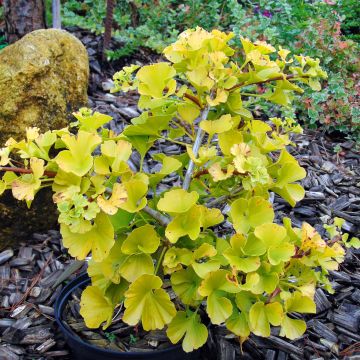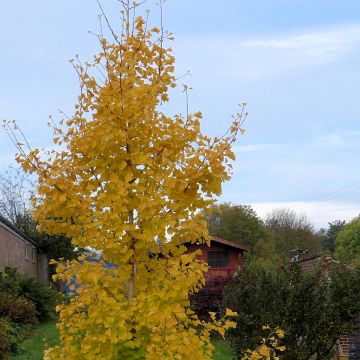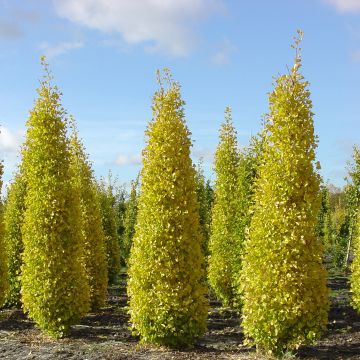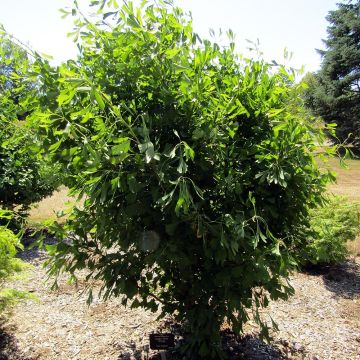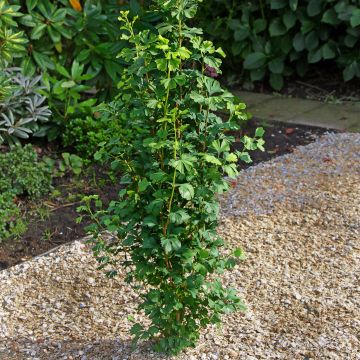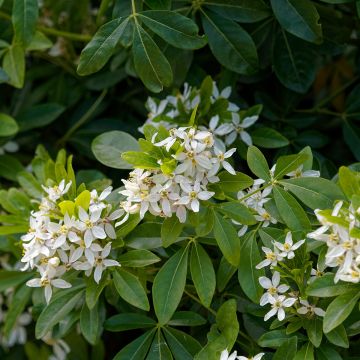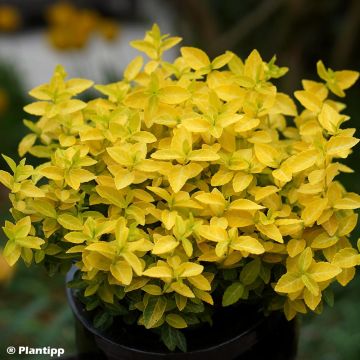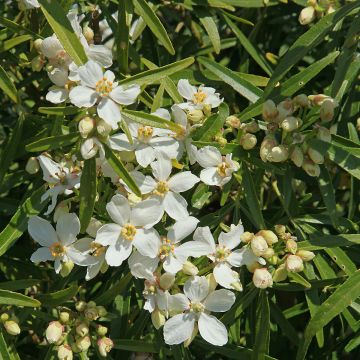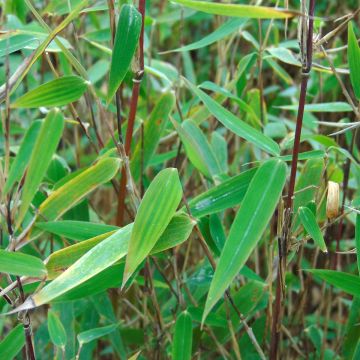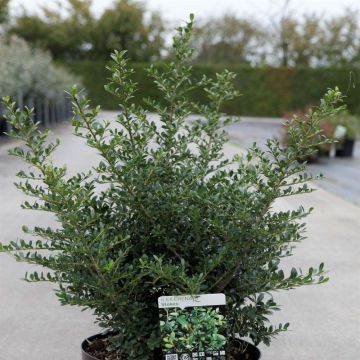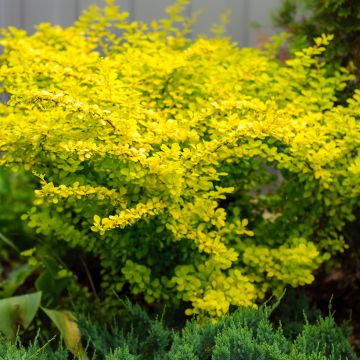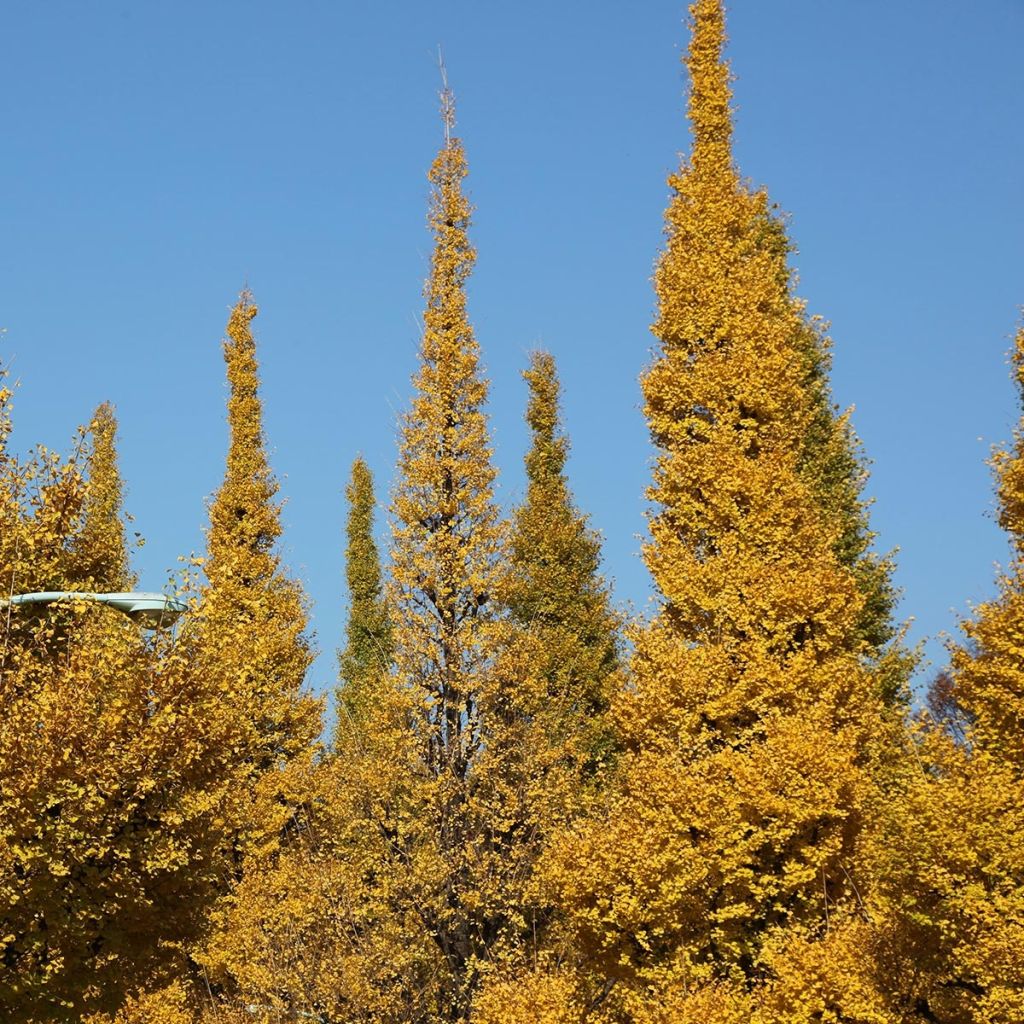

Ginkgo biloba Eiffel
Ginkgo biloba Eiffel
Ginkgo biloba Eiffel
Maidenhair Tree, Living Fossil Tree
Hello, I have some similar variety called menhir, very beautiful specimens. On the website, it seems that it would be appropriate to change the units or size values: 3cm (1in) in width x 10cm (4in) in height?
Robert, 15/03/2023
Special offer!
Receive a €20 voucher for any order over €90 (excluding delivery costs, credit notes, and plastic-free options)!
1- Add your favorite plants to your cart.
2- Once you have reached €90, confirm your order (you can even choose the delivery date!).
3- As soon as your order is shipped, you will receive an email containing your voucher code, valid for 3 months (90 days).
Your voucher is unique and can only be used once, for any order with a minimum value of €20, excluding delivery costs.
Can be combined with other current offers, non-divisible and non-refundable.
Home or relay delivery (depending on size and destination)
Schedule delivery date,
and select date in basket
This plant carries a 24 months recovery warranty
More information
We guarantee the quality of our plants for a full growing cycle, and will replace at our expense any plant that fails to recover under normal climatic and planting conditions.
Would this plant suit my garden?
Set up your Plantfit profile →
Description
Ginkgo biloba 'Eiffel' is an Italian creation, unique in its fastigiate shape, very compact and modest in size! Indeed, it forms a bushy column 10m (32ft 10in) tall and 3m (9ft 10in) wide, perfect for adding verticality to a medium to large-sized garden. The original habit of this deciduous tree is enhanced by its dense and slender foliage in medium green notched fans, turning bright golden yellow in autumn. Exceptionally robust and hardy, this species adapts to full sun or partial shade and to all normal to rich, well-drained, dry to moist soils.
Ginkgo biloba, also known as the 'tree of forty crowns' or sometimes 'Maidenhair tree' due to the shape of its leaves and the pattern of its veins resembling capillaries, is a very primitive tree from the almost extinct Ginkgoaceae family. This living fossil, which does not bear flowers, normally reaches up to 24m (78ft 8in) in height, showing an upright habit in its youth and a more spreading one with age, measuring up to 9m (29ft 6in) in diameter. This majestic tree, native to China, has today (and probably for a long time) disappeared from its natural habitat, surviving only thanks to the admiration and respect it has inspired in human beings for many generations, who continue to plant and multiply it in their most beautiful parks.
Ginkgo biloba 'Eiffel' is one of the few horticultural varieties derived from Ginkgo biloba and comes from an Italian creation. This cultivar stands out from the others due to its moderate growth and compact columnar habit. When fully grown, the tree reaches an average height of 10m (32ft 10in) with a spread of 3m (9ft 10in) and grows 20 to 40cm (7.9 to 15.7in) in height per year. Its flat, deciduous leaves are semi-round, medium green, turning to bright golden yellow in autumn, and have the characteristic fan shape, measuring from 4 to 10cm (1.6 to 3.9in) wide. This beautiful tree has a spreading root system and develops quite slowly during the first 10-12 years of its life, and then faster afterwards.
Ginkgo biloba 'Eiffel' can be planted as a focal point on a lawn or at the back of a flower bed in front of the house, where it becomes the focal point of the garden, especially in autumn when its leaves turn a remarkable golden yellow. It can also be combined with Japanese maples, azaleas, and rhododendrons in a medium to large-sized garden...
Interestingly, despite its deciduous leaves, Ginkgo biloba is a conifer from a botanical point of view. It is a very hardy shrub. It is also very resistant. It was one of the few trees to survive the atomic bomb in Hiroshima in 1945!
It is the oldest tree species found on Earth, dating back 300 million years, surviving all the cataclysms that the Earth has experienced. This tree with a thousand crowns has been living for thousands of years in the Tianmushan Mountains in southeastern China. It was reintroduced to Europe in the 18th century. With exceptional longevity, Ginkgo is also a medicinal plant whose leaves are used to reduce the symptoms of Alzheimer's disease.
Report an error about the product description
Ginkgo biloba Eiffel in pictures
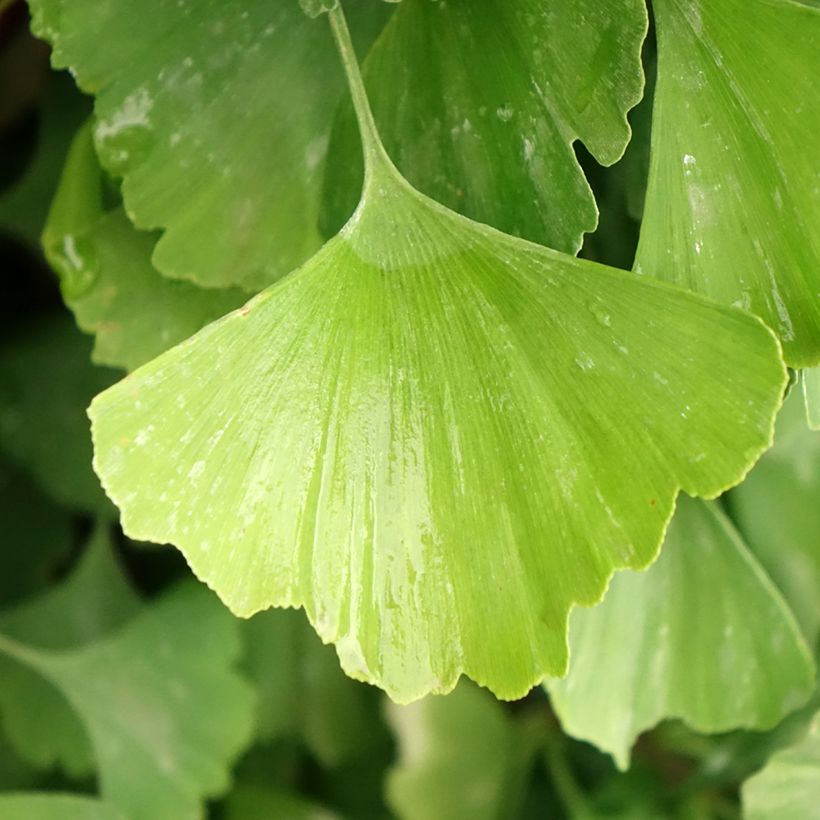

Plant habit
Foliage
Botanical data
Ginkgo
biloba
Eiffel
Ginkgoaceae
Maidenhair Tree, Living Fossil Tree
Cultivar or hybrid
Other Ginkgo
View all →Planting and care
Ginkgo biloba 'Eiffel' is a very hardy tree, resistant to temperatures as low as -30°C, but it dreads excessive heat; it suffers beyond 30°C, especially if the soil is dry. It thrives in the sun in any good fertile, deep, and well-drained soil. We advise you to stake the young plants, which sometimes have a tendency not to grow straight. It is also important to ensure that it does not lack water during the summer period. It tolerates a slightly calcareous soil as long as it remains moist. In dry soil, this tree will grow very slowly. However, it will also suffer in soil that is too wet and heavy, constantly saturated with water. It is a very hardy bush that withstands urban pollution well. When planting, dig a fairly deep hole rich in humus. During the plant's dormant period, in February-March, remove any rebellious or tangled shoots to maintain a good habit of the plant.
Planting period
Intended location
Care
-
, onOrder confirmed
Reply from on Promesse de fleurs
Similar products
Haven't found what you were looking for?
Hardiness is the lowest winter temperature a plant can endure without suffering serious damage or even dying. However, hardiness is affected by location (a sheltered area, such as a patio), protection (winter cover) and soil type (hardiness is improved by well-drained soil).

Photo Sharing Terms & Conditions
In order to encourage gardeners to interact and share their experiences, Promesse de fleurs offers various media enabling content to be uploaded onto its Site - in particular via the ‘Photo sharing’ module.
The User agrees to refrain from:
- Posting any content that is illegal, prejudicial, insulting, racist, inciteful to hatred, revisionist, contrary to public decency, that infringes on privacy or on the privacy rights of third parties, in particular the publicity rights of persons and goods, intellectual property rights, or the right to privacy.
- Submitting content on behalf of a third party;
- Impersonate the identity of a third party and/or publish any personal information about a third party;
In general, the User undertakes to refrain from any unethical behaviour.
All Content (in particular text, comments, files, images, photos, videos, creative works, etc.), which may be subject to property or intellectual property rights, image or other private rights, shall remain the property of the User, subject to the limited rights granted by the terms of the licence granted by Promesse de fleurs as stated below. Users are at liberty to publish or not to publish such Content on the Site, notably via the ‘Photo Sharing’ facility, and accept that this Content shall be made public and freely accessible, notably on the Internet.
Users further acknowledge, undertake to have ,and guarantee that they hold all necessary rights and permissions to publish such material on the Site, in particular with regard to the legislation in force pertaining to any privacy, property, intellectual property, image, or contractual rights, or rights of any other nature. By publishing such Content on the Site, Users acknowledge accepting full liability as publishers of the Content within the meaning of the law, and grant Promesse de fleurs, free of charge, an inclusive, worldwide licence for the said Content for the entire duration of its publication, including all reproduction, representation, up/downloading, displaying, performing, transmission, and storage rights.
Users also grant permission for their name to be linked to the Content and accept that this link may not always be made available.
By engaging in posting material, Users consent to their Content becoming automatically accessible on the Internet, in particular on other sites and/or blogs and/or web pages of the Promesse de fleurs site, including in particular social pages and the Promesse de fleurs catalogue.
Users may secure the removal of entrusted content free of charge by issuing a simple request via our contact form.
The flowering period indicated on our website applies to countries and regions located in USDA zone 8 (France, the United Kingdom, Ireland, the Netherlands, etc.)
It will vary according to where you live:
- In zones 9 to 10 (Italy, Spain, Greece, etc.), flowering will occur about 2 to 4 weeks earlier.
- In zones 6 to 7 (Germany, Poland, Slovenia, and lower mountainous regions), flowering will be delayed by 2 to 3 weeks.
- In zone 5 (Central Europe, Scandinavia), blooming will be delayed by 3 to 5 weeks.
In temperate climates, pruning of spring-flowering shrubs (forsythia, spireas, etc.) should be done just after flowering.
Pruning of summer-flowering shrubs (Indian Lilac, Perovskia, etc.) can be done in winter or spring.
In cold regions as well as with frost-sensitive plants, avoid pruning too early when severe frosts may still occur.
The planting period indicated on our website applies to countries and regions located in USDA zone 8 (France, United Kingdom, Ireland, Netherlands).
It will vary according to where you live:
- In Mediterranean zones (Marseille, Madrid, Milan, etc.), autumn and winter are the best planting periods.
- In continental zones (Strasbourg, Munich, Vienna, etc.), delay planting by 2 to 3 weeks in spring and bring it forward by 2 to 4 weeks in autumn.
- In mountainous regions (the Alps, Pyrenees, Carpathians, etc.), it is best to plant in late spring (May-June) or late summer (August-September).
The harvesting period indicated on our website applies to countries and regions in USDA zone 8 (France, England, Ireland, the Netherlands).
In colder areas (Scandinavia, Poland, Austria...) fruit and vegetable harvests are likely to be delayed by 3-4 weeks.
In warmer areas (Italy, Spain, Greece, etc.), harvesting will probably take place earlier, depending on weather conditions.
The sowing periods indicated on our website apply to countries and regions within USDA Zone 8 (France, UK, Ireland, Netherlands).
In colder areas (Scandinavia, Poland, Austria...), delay any outdoor sowing by 3-4 weeks, or sow under glass.
In warmer climes (Italy, Spain, Greece, etc.), bring outdoor sowing forward by a few weeks.































